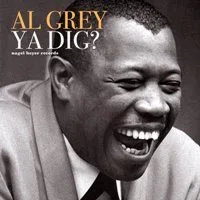Styles: Jazz, Big Band
Year: 2003
File: MP3@320K/s
Time: 68:52
Size: 158,9 MB
Art: Front
(6:38) 1. Song For Bilbao
(6:08) 2. Night And Day
(5:26) 3. Skylark
(6:26) 4. Two Seconds To Midnight
(8:31) 5. Sea Changes
(7:48) 6. Out House
(6:08) 7. One Mint Julep
(7:57) 8. Dee Minor
(9:02) 9. Cottontail
(4:45) 10. When I Fall In Love
When it comes to putting together a big band, Alan Baylock has an enormous advantage. As chief arranger for the U.S. Air Force’s renowned jazz ensemble, the Airmen of Note, he’s on a first-name basis with some of the most accomplished big band musicians in the country, if not the world. Nearly a dozen of the sidemen on Two Seconds to Midnight, Baylock’s splendid debut recording as leader of the band, were enlisted from the ranks of the AON with four others from the Army Blues and one from the Navy Commodores. As a bonus, there are guest appearances by the celebrated pianist Kenny Werner on Baylock’s “Sea Changes” and Ellington’s “Cottontail.”
Of course, assembling these pros in a studio is one thing; handing them charts that are rewarding to play is quite another. The good news for musicians and listeners alike is that Baylock excels in that sphere as well. One doesn’t replace a legendary arranger such as Mike Crotty without having uncommon resourcefulness and talent. Baylock knows what it takes to make a big band fresh and exciting, and writes accordingly. As he explains it: “I consciously try to forget old habits to discover newer ways of doing things. Whether it’s mixing and matching instrument[al] colors to achieve subtly different sounds, adding a few extra notes into a voicing for more ‘crunch,’ putting in an unexpected rhythm... or completely reworking the harmonic and formal structure of a tune, it’s the process of experimentation that makes creating music so exciting...”
The excitement is evident throughout, from Pat Metheny’s dancing “Song for Bilbao” to the Victor Young/Ned Heyman’s ballad “When I Fall in Love.” The album’s other two standards are as different as, well, “Night and Day,” with tenors Tyler Kuebler and Jeff Antoniuk dueling on a scorching arrangement of the Cole Porter confession, and trumpeter Tim Leahey and trombonist Joe Jackson taking wing on Hoagy Carmichael’s achingly lovely “Skylark.” Ensemble and soloists are equally impressive on Jerry Bergonzi’s busy “Out House,” Mike Mainieri’s strapping “Dee Minor,” Rudolph Toombs’ funky R&B classic, “One Mint Julep,” and Baylock’s on-the-edge title selection.
There is one departure from the big band format, with Werner, bassist Paul Henry and drummer Steve Fidyk showcased on the billowing “Sea Changes.” Fidyk, bassists Henry or John Pineda, guitarist Shawn Purcell and pianist Bob Larson, it must be noted, comprise as capable a rhythm section as one could desire. And with trumpet and trombone sections made up almost entirely of Airmen, there’s no letdown there either.
“Cottontail,” with ripping solos by Werner, Fidyk, alto Andy Axelrad, Antoniuk (soprano), baritone Doug Morgan and tenor Luis Hernandez, is a gem, but so is almost everything else, with “Out House” (solos by Kuebler, Purcell and Fidyk) and “Dee Minor” (Larson, trombonist Ben Patterson, baritone Chad Makela) sure to give almost every attentive listener goosebumps. Not bad for a first try, Alan. We hope to hear from you again, not only as principal arranger for the Airmen but with your “own” band as well.~ Jack Bowers https://www.allaboutjazz.com/two-seconds-to-midnight-alan-baylock-sea-breeze-jazz-review-by-jack-bowers
Personnel: Alan Baylock, leader, arranger; Andy Axelrad, Antonio Orta, alto sax, flute; Joseph Henson, alto sax; Tyler Kuebler, tenor sax, clarinet; Luis Hernandez, tenor sax; Jeff Antoniuk, tenor, soprano sax, clarinet; Chad Makela, baritone sax, bass clarinet; Doug Morgan, baritone sax; Brian MacDonald, Mike Davis, Mike Kamuf, Rich Sigler, Tim Leahey, trumpet, flugelhorn; Ben Patterson, Jeff Martin, Joe Jackson, trombone; Jeff Cortazzo, bass trombone; Shawn Purcell, guitar; Bob Larson, piano; John Pineda, Paul Henry, bass; Steve Fidyk, drums.
Two Seconds To Midnight




















